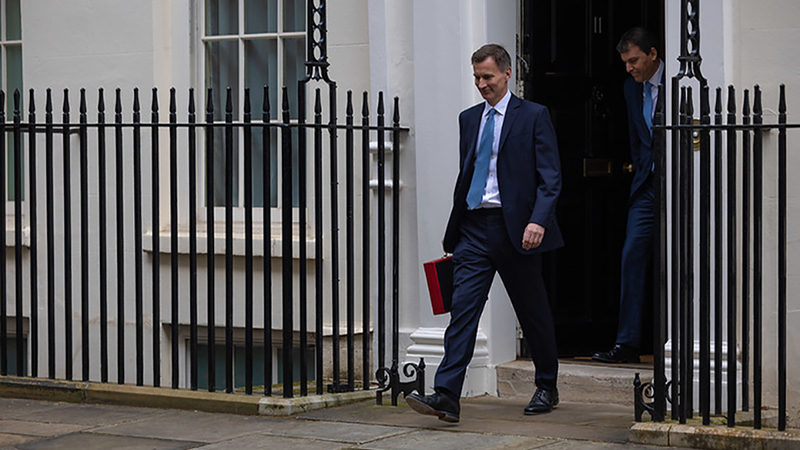Chancellor Jeremy Hunt’s Budget came with a significantly improved outlook for the UK economy.
While you would expect the Chancellor of the day to put a positive spin on things, it was the independent Office for Budget Responsibility (OBR) which provided most reason for optimism.
The OBR is forecasting a “shorter and shallower” downturn than in earlier projections. It now predicts the UK will avoid recession in 2023, although the economy will shrink by 0.2%. Next year however, things look much brighter. Growth of 1.8% is predicted for 2024, with a healthy 2.5% growth in 2025 and 2.1% in 2026.
Crucially, the OBR sees inflation falling sharply throughout 2023 and landing close to target at 2.9% by the turn of the year. Should this prove correct, it will mean little or no further monetary tightening by the Bank of England. It would in fact open the door to interest rate cuts later in the year.
If inflation is falling consistently while the economy is stagnating, there will be significant pressure on Andrew Bailey and the MPC to act to ease financial conditions. They will be very mindful of moving too hastily and stoking inflation up again of course, but will not just sit on their hands if easing is required.
Across the Atlantic the Federal Reserve is now likely to take a ‘pause’ in rate hiking in the wake of the SVB collapse. Staying hawkish as the Fed turns dovish is not a position the Bank of England will be keen to take.
Such a scenario should provide a tailwind to UK equities broadly, but the picture is complex due to variations in how different sectors respond in various parts of the economic cycle. Banks will be a particular area of concern, as in America.
“Today’s budget has been delivered under the backdrop of a seemingly teetering global financial system with the fallout from SVB and Credit Suisse weighing on share prices, said Marcus Brookes, chief investment officer at Quilter Investors. “Unlike the ‘mini-budget’ of September, the Government will be relieved it is global actions disrupting markets rather than its own policies.”
Brookes sees the forecast for inflation to slide all the way to 2.9% as “ambitious” and he cautioned that it is hard to get away from the fact UK economic growth is stagnating. “The UK will do well to hit those OBR targets,” he noted.
“For investors, the UK remains somewhat of a difficult place to judge right now despite the improving picture,” Brooks continued. “With financials dominating the UK market the macroeconomic backdrop will weigh on share prices and it seems conditions could deteriorate further. It is environments such as this that highlights the importance of investing in quality companies with resilient revenue streams and that will benefit from the Government’s policies.”
Victoria Scholar, head of investment at Interactive Investor said: “The Chancellor said the UK will not enter a technical recession this year. However the economy will still shrink by 0.2% in 2023 versus November’s forecast for a decline of 1.4%.
Scholar noted that the markets have not welcomed the update with a bullish response so far.
“Hunt wanted today’s Budget to be boring, but markets are anything but that. Today’s sell-off across equities with sharp declines in the banking sector have overshadowed the impact from the Treasury’s fiscal plans for spending and taxation.
“Despite attempts by the Chancellor to paint a rosy picture with improved figures on growth and inflation, the strain in the financial sector is yet another headwind to contend with,” she continued. “The market turmoil and the economic fallout are paving the way for a much smaller chance of a rate hike from the Bank of England this month. Interest rate futures are now pricing in a 60% chance the central bank opts for no change at its next monetary policy committee meeting.”
Sheridan Admans, head of fund selection at Tillit, sees pockets of strength within UK equities that could benefit from an improved economic picture.
“It is highly encouraging to witness signs of the UK economy holding up better than expected, which continues to provide a great deal of optimism,” he said. “This is especially true regarding the successes witnessed within the UK’s tech economy and life sciences sectors, as well as the impressive growth in the UK’s film and TV and advanced manufacturing industries.”
“Furthermore, the UK is proudly recognised as a ‘world leader’ in producing aircraft wings and off-shore wind. It is highly plausible that UK-focused funds might now witness a notable reversal of capital flows that have flowed to overseas markets in recent years.”
For more Budget coverage visit our sister titles International Adviser and ESG Clarity.










